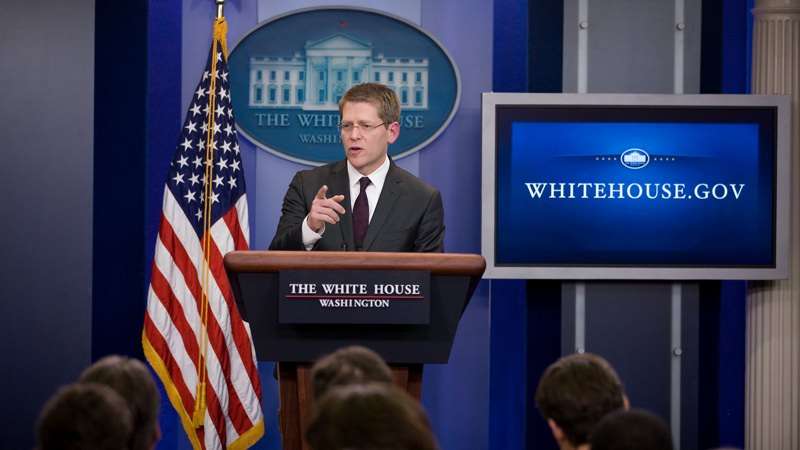Obama Administration Continues to Dodge Questions About Obamacare

If you want answers from the administration about Obamacare, tough luck. The federal exchanges have been open, and broken, for nearly four weeks now, but the White House and federal health officials aren't exactly being forthcoming with details.
A speech by President Obama earlier this week that was expected to address the online sign-up issues that have plagued HealthCare.gov came across more like an infomercial, complete with call-in number, for all the ways the administration says the law can work without the website.
White House Press Secretary Jay Carney repeatedly referred questions about the health law to federal health officials. But federal health officials aren't much help either. As The Washington Examiner's Phil Klein writes, an "operational update" from Centers for Medicare and Medicaid Services (CMS) Communications Director Julie Bataille yesterday left a lot of unanswered questions.
We still don't know how many people have actually enrolled in health insurance yet. All the administration will say is that 700,000 applications have been submitted so far. But that just means that people have applied to shop around and determine their eligibility for subsidies, not that they have applied for or even seen specific plan options.
Moreover, that's a national number, across all the exchanges, including those run by the states. CMS won't say how many of those submitted applications came from the more deeply troubled federal exchange system that covers 36 states. Indeed, Bataille claimed not to know how many were from the federal system and how many were from state-run exchanges. That doesn't make much sense. In order to come up with the 700,000 applications figure, application data would have to be collected from the state exchanges. Anything on top of that would be the federal portion. It's not plausible that no one at CMS knows the federal/state split.
Bataille also dodged questions about who, besides management consultant and former acting White House budget director Jeff Zients, is involved in the "tech surge" of IT-experts the administration is supposedly bringing in to fix the website problems.
And she refused to say whether Health and Human Services Secretary Kathleen Sebelius knew about the exchange's problems before launch. According to Klein, when Bataille was first asked about Sebelius, she responded to a different portion of the question.
When pressed further on Seblelius, call moderator and HHS spokesman Richard Olague stepped in and said, "Next question, please."
When asked about Sebelius one more time, Bataille said, "I don't think any of us were able to fully predict the consumer demand that we would have seen on Oct. 1."
Given that the problems go far beyond opening-day traffic volume, that still doesn't answer the question.
The evasiveness is not new. The administration has long been dodgy and secretive when it comes to the health law's internal operations. Senior officials insisted over and over again that it would work, and work on schedule, but never provided the kind of evidence or system previews they presumably would have if it had actually been working well. And they kept insisting that implementation was on track up to the very last minute, even as key tests were delayed, and then failed.
So when Josh Barro, who is basically supportive of the law, writes that "there's no reason not to level with the public right now, unless the truth is so horrible and the website is so un-fixable that Obama administration officials can't bring themselves to discuss the matter publicly," I wonder if he might be on to something. Barro says he suspects that it's not the case that things are truly disastrous behind the scenes. But if there were positive developments to share, wouldn't someone be stepping forward to share them? Given the administration's history of both poor implementation and misleading communications about the status of the health exchange project, it's not clear to me why anyone ought to continue to give the administration the benefit of the doubt.


Show Comments (237)